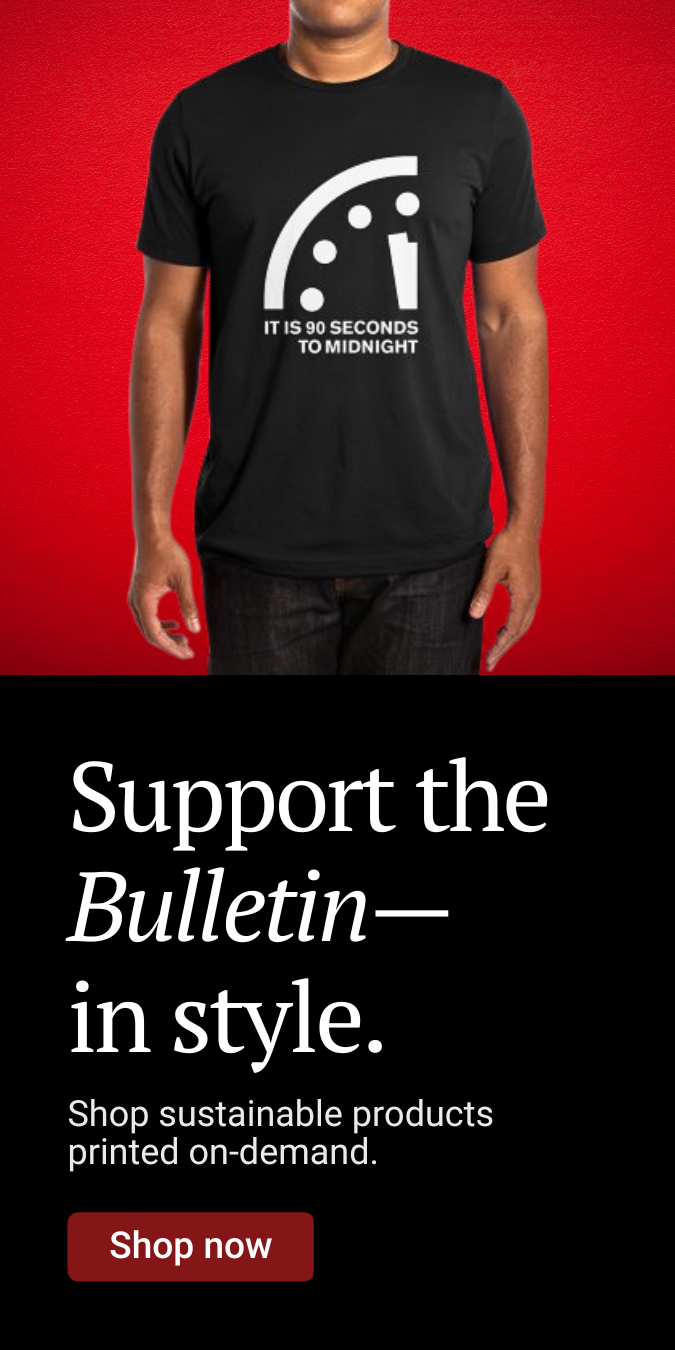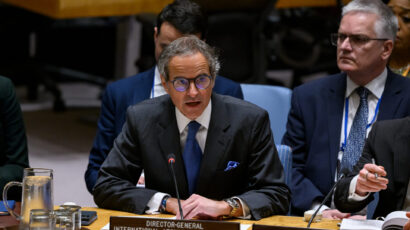Big advertising to ditch Big Oil?
By Dan Drollette Jr | April 22, 2021
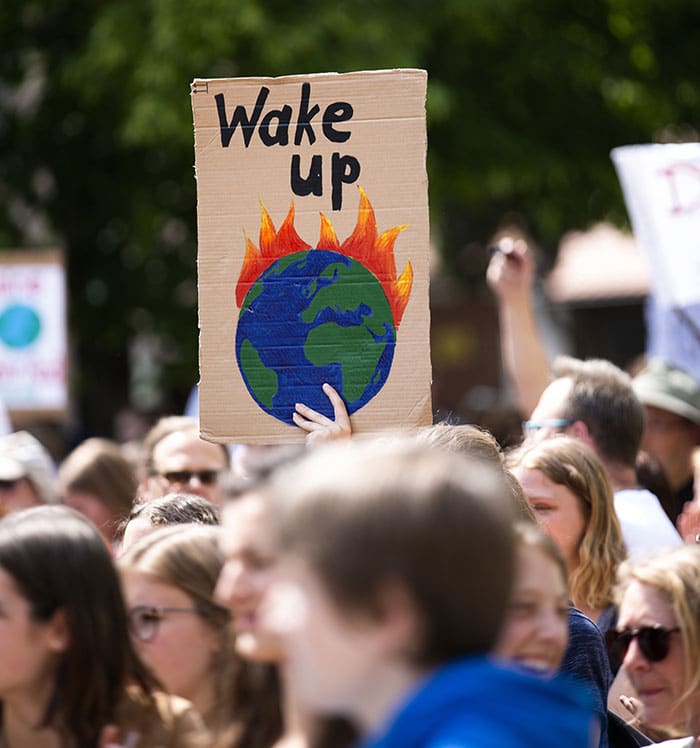
Some of the biggest contributors to global warming—if indirect ones—are the public relations firms and ad agencies in the pay of Big Oil and Big Auto. These companies not only market and promote products that consume vast amounts of fossil fuel, they also sometimes promote climate misinformation spread by fossil fuel companies.
But there is now the glimmering of a rebellion within the ranks. Tensions are heating up between the young “creatives” in the world of advertising and public relations and their clients—and between the younger generation at the ad agencies and the oldtimers (think of the protagonists in the series “Mad Men”). And some younger folks inside the PR and ad industry are taking things a step further, engaging in a full-court press to get their colleagues in the creative departments at some of the biggest firms on Madison Avenue to pressure their bosses to quit working for fossil fuel companies.
One of the organizations spearheading this effort is a months-old group calling itself “Clean Creatives,” which has produced a report that lays bare the connections between the world’s largest PR and ad agencies and the fossil fuel industry, as well as a video, a website, and a call to take the pledge to accept no fossil fuel money. It may seem like the group faces an uphill battle, given the amount of money at stake and the huge influence wielded by the American Petroleum Institute and its members. But Clean Creatives’ moment could be here, judging by the reduced fossil fuel revenue at some advertising agencies, a recent spate of lawsuits regarding deceptive climate denial advertising, and big changes in American culture at large.
Based on the tenor of its website language, Clean Creatives certainly seems to be serious about taking on fossil fuel advertisers and their agencies: “We’re partnering with AdLeaker to shed light on how the fossil fuel industry uses PR and ad professionals to advance their dirty agenda. If you currently work for an agency with fossil fuel clients and wish to anonymously share documents or information about their work, send a Signal message to the number 929.305.1583. All sources will remain confidential.”
To find out more, the Bulletin’s deputy editor, Dan Drollette Jr., spoke by phone with one of the founders of Clean Creatives, Duncan Meisel.
(Editor’s note: This interview has been condensed and edited for brevity and clarity.)
Dan Drollette Jr.: Can you tell us what Clean Creatives is, and what it’s trying to do?
Duncan Meisel: Clean Creatives is a campaign that’s bringing together leading advertising agencies, public relations agencies, their staffs, and their clients to address the public relations’ and ad industries’ work with fossil fuel companies. We talk with the leaders of agencies, freelance creatives, and ask them to make a commitment to not take any future contracts with fossil fuel companies, trade associations, or their front groups.
Drollette: And you call on some of the agencies’ clients—their bread and butter—including some major corporations, as well as environmental and climate justice groups, to amplify that call for them to quit working for the fossil fuel industry?
Meisel: Right.
Drollette: How much of a problem is greenwashing and oil company misinformation?
Meisel: Misinformation from the fossil fuel companies is one of the biggest barriers to meaningful climate action. The advertisements that companies like Exxon, Chevron, and Shell create are meant to create the impression that they are already making attempts to solve the problem—or that there’s no way to solve the problem without using much more oil.
And these ads are not really true. There’s not a single major oil company that has a business plan that is in line with the Paris Climate Agreement targets. They have very vague statements that are essentially there to prevent governments from taking more serious action to limit their emissions directly—and that’s the kind of action that we absolutely do need. We need the US government to make bigger steps. We need international coordinated action. And these fossil fuel ad campaigns are designed to stymie that action.
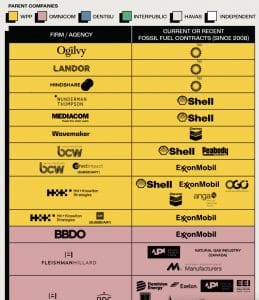
Drollette: Who belongs to Clean Creatives, and what are its origins?
Meisel: We found that the values of the creatives and executives within the public relations and advertising industry are much more aligned with those of the advocates for climate action than they are with Exxon or Chevron or something like that. These folks are smart, they’re in the creative arts, most of them live in cities, and yes, they need jobs, but they also see the need for climate action…. Young people really care about climate change, and what most people want is to not cook the planet.
So we think that there is a really ripe opportunity to bring those people together and ask them to start creating new standards for their industry that are in line with their values—and in line with the planetary goal of stopping the climate crisis.
Drollette: A lot of people may only know the ad industry from the Mad Men Netflix series. For the benefit of our readers, what is a creative?
Meisel: Advertising—and public relations—relies on smart people to come up with the best ways to message a product, a cause, or a company. They are the people who come up with the great copywriting, or come up with the concepts that drive the advertising of PR campaigns, or actually create those compelling images. There’s a whole ecosystem of people with different skillsets who are kind of lumped together under the term “creative” to describe their role. But they’re the people who create the ads—and the public relations statements—that make the fossil fuel industry campaigns possible.
The term also includes a large sector of video producers—the people who actually do the video shoots for advertisements. And there are freelancers, contractors and other individuals who are a crucial part of the industry, who may not be tied to a specific agency but who have a really important role to play in making the sausage.
Drollette: Are you yourself a creative?
Meisel: My background is actually in global climate communications. I worked at 350.org for about six years—and I think a lot of the origins for this campaign came from experiences like mine.

Drollette: What do you mean?
Meisel: There were a lot of great ideas, but every time we’d develop a new campaign to save the planet, there would always be these really well-funded—and, honestly, well-run—advertising and PR campaigns that would spring up to oppose our goals. So I think that experience gave me a really close perspective into how effective ad campaigns can be, when it comes to standing in the way of climate action.
And the thing of it is, the creatives who create those campaigns have so much incredible energy and talent; their skills determine the ability of the fossil fuel industry to achieve its goals. While we want to use their skills to work for climate action.
So I think that the creatives are key; they have a lot to say and a lot to bring to this discussion.
Drollette: Isn’t the big money stacked against you? Because since the 1990s the major oil companies have spent something like $3.6 billion on advertising, in order to present themselves as environmentally and socially responsible when it comes to climate change. So it sounds like there’s a big task in front of you.
Meisel: If anything, I think that number is probably an undercount of the total amount that they’ve spent, because a lot of it goes through front organizations or trade associations like the American Petroleum Institute. And those organizations have a massive impact on the public mind; their campaigns matter. They really are one of the crucial things standing in the way of governments doing their job.
So I think the important thing to realize is that these ads are indeed persuasive. These ads are designed to be persuasive, and they succeed.
The real things that we need to do now is to both shut off the tap of that misleading communication, and also to open up the tap of creative communication in favor of climate action.
Drollette: Besides the sheer volume of money, don’t some of these ad agencies have really long and deep ties to big oil and big auto? AdAge wrote that McCann Erickson, one of the behemoths of the advertising business, has been working for the fossil fuel industry since the era of Standard Oil and John D. Rockefeller. And [public relations giant] J. Walter Thompson has been with Ford since 1910. So aren’t you up against some very long-established, personal relationships between the advertising industry and big oil?
Meisel: It’s true, they are very well-established. But the thing to remember is that the ad industry has made this kind of transition before. What we’re seeing now is what the debate about tobacco advertising looked like at the beginning of the ‘90s—an era when a bunch of people began to realize that tobacco was really toxic, that it was really bad. And they were dealing with people on the other side saying: “It’s just so much money.”
You have to remember that tobacco advertising seems dirty now, but some of the most iconic advertisements of all time were tobacco advertisements. They were a huge part of the ad industry’s cultural footprint and prestige—and those tobacco advertisements really are not a part of the business model of the major ad agencies anymore. There are some agencies that still continue to take that work and are publicly shamed for it—rightfully so, I think—but they’re in the minority.
So, it’s not impossible for this transition to happen with fossil fuel advertising and PR as well.
Drollette: How do you envision that sea change coming about?
Meisel: I think that the challenge that those agencies that are deeply associated with fossil fuels are going to start to have is with attracting new talent. Young people are the lifeblood of the creative industry, and vital for the ability of the ad industry to thrive. They bring so much to the table, particularly in a world where the conversation is driven by social media. And those young people really want to see climate action happen; these are the people that led the climate strikes, the biggest coordinated actions for climate action ever.
Agencies that continue to associate with fossil fuels will face a harder and harder sell to young people who really want climate action. I believe that those young people are going to have their say—and they’re going to vote with their feet.
Young people have a really unique role to play in how agencies grow and build; they bring into the conversation concerns about diversity and equity and inclusion which are obviously a huge part of what arose out of the racial justice protests last year. Agencies were pushed really hard internally by their young staff to make honest, deep commitments to address issues of inequality within their employee base—and the agencies that are doing that are winning over brands that want to see diversity, equity and inclusion represented in their advertisements.
And I think that’s also going to be true when it comes to climate change. One of the biggest companies advocating for sustainable business practices is not Patagonia, it’s Unilever, which is one of the largest consumer-facing brands that exist on the planet, and they are trying to make themselves a net zero company very quickly.
So if I’m Unilever, and I need to choose between two agencies, one of whom is trying to greenwash BP and one that actually has a genuine commitment to sustainability, then I think that’s an easy choice as to who to go with. And we want to see more of that.
[Unilever makes everything from baby food to the strongly pro-climate Ben & Jerry’s ice cream, and is one of the world’s top spenders on advertising. Owner of more than more than 400 brands, this multinational company recently staked out a very public position on climate change, announcing its own “net zero by 2050” plan, wrote Forbes magazine.]
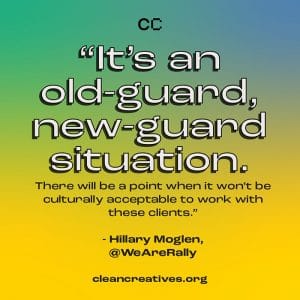
Drollette: I read an article in Grist that quoted the co-founder of Clean Creatives, Jamie Henn, as saying “In the grand scheme of things, the fossil fuel industry is small fish to advertisers. Oil and gas companies spend most of their PR budget on political advertising, not selling their product. Meanwhile, Unilever, a consumer-facing brand, is spending $8 billion a year on ads…” He also said that an ad agency would drop an oil company in a second because their other clients are so much more valuable. Which to me is an amazing idea, that the economic clout of the fossil fuel companies has diminished so much. That must be helping you folks make progress?
Meisel: I am really encouraged by the results that we’re seeing so far. Right now we have over 60 agencies that have taken the pledge and over 150 individual creatives that have taken the Clean Creatives pledge not to work for the fossil fuel industry.
Drollette: What about the other side of the aisle—that is, newspapers and magazines that shun fossil fuel advertisements? For example, I read where The Guardian has announced it’s no longer going to take any fossil fuel ads, and so has the British Medical Journal. Is that the trend you’re seeing—that more of the places where you buy advertising space are turning down your clients’ ads? Or is that more of a trend that’s happening in Europe—and only just now starting to catch on over here?
Meisel: It’s true, I did see where the entire city of Amsterdam banned fossil fuel advertisements from any public display.
But I think that when it comes to the United States, it’s more about legal liability. Fossil fuel companies are finding themselves the subject of major lawsuits from cities and states that are experiencing real climate damages; three weeks ago there was a complaint filed at the Federal Trade Commission about Chevron’s recent misleading advertisement campaign. So I think that the real threat in this country is that companies that do this advertising are going to find themselves in the crosshairs of regulators—or being forced to answer very uncomfortable questions from governments, legal figures, and so on that want to see climate action happen and recognize that this is an impediment to it.
Drollette: The announcement about the formation of Clean Creatives said that the organization will go up to the clients of PR firms and ad agencies—the sustainability-minded businesses, non-profits and other institutions—and inform them if the agency they are working with is actively undermining their progress by spinning fossil-fuel industry propaganda. Can you give me some specific, concrete examples of how that works?
Meisel: There are several layers to it. For one thing, 22 climate justice organizations did release a letter explaining why they want their agencies to take this step of declining future fossil fuel contracts. That happened at the beginning of March.
To give you an idea of one of the other layers—let’s take a recent example that we uncovered. There’s a tea brand called Tazo Tea, which has a marketing project that’s called Tree Corps. They’re working with an R&B singer named SZA, and they are planting trees in black and brown communities that are affected by environmental racism.
This is a great campaign. This is a great way to sort of elevate their sustainability profile. It’s providing real benefits to real people, and it’s a good project.
But the PR agency working on that project is Edelman—and at the same time, Edelman is working with the American Fuel and Petrochemical Manufacturers Association. Which is advocating for refineries in the same communities where Tazo is planting trees. So I think the message to brands is that when you are trying to achieve these goals, when you’re putting your sustainability values first, then it’s best not to have an agency that is working against those goals. If you work with the wrong agency, you can be making your job a lot harder.
So I think there’s a really simple, straightforward kind of self-interest case to be made here. It’s not just “Oh, this feels icky,” it’s making the goals of these companies and these brands much harder.
And Edelman is a very big company. They have done a large amount of business with fossil fuels, but they also have a really great big customer base in many other issues. That’s the kind of decision that brands will start to take a hard look at.
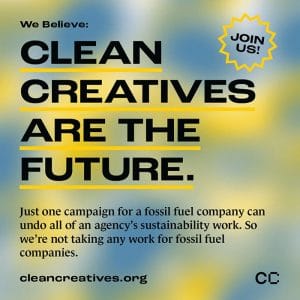
Drollette: One thing I was curious about. Looking at the telephone area code I dialed to place this call, you must be based in Texas, is that right?
Meisel: That’s right. Austin, Texas.
Drollette: It must be kind of like sacrilege to take on the oil companies in Texas. And I say that as someone whose uncle lived in Houston and worked as a petroleum geologist. I know Austin is famously different from the rest of the state, but still…
Meisel: It’s an interesting story actually. There’s an agency here in Austin called GSD&M that actually was the agency of record for the American Petroleum Institute for about two years—and that fact was actually part of the inspiration for this project. I was like: “I know that these young creative people in Austin, Texas, do not want to work for the oil companies. Like, these are my people.” And when I had that realization, I thought: “I bet this is true with a lot of agencies.” And that’s really what kicked off a lot of the thinking about the Clean Creatives project.
And there’s a bigger picture issue to all this as well, outside of Clean Creatives. Texas is going to be facing a real challenge soon. Because we’re at peak oil now, and from here on in the demand for gasoline worldwide is going to go down—that’s starting now, and going down forever. And it’s going to be hard to fund Texas schools and Texas universities without that fossil fuel money coming in. So there needs to be a very proactive conversation about what Texas is going to do.
Together, we make the world safer.
The Bulletin elevates expert voices above the noise. But as an independent nonprofit organization, our operations depend on the support of readers like you. Help us continue to deliver quality journalism that holds leaders accountable. Your support of our work at any level is important. In return, we promise our coverage will be understandable, influential, vigilant, solution-oriented, and fair-minded. Together we can make a difference.

